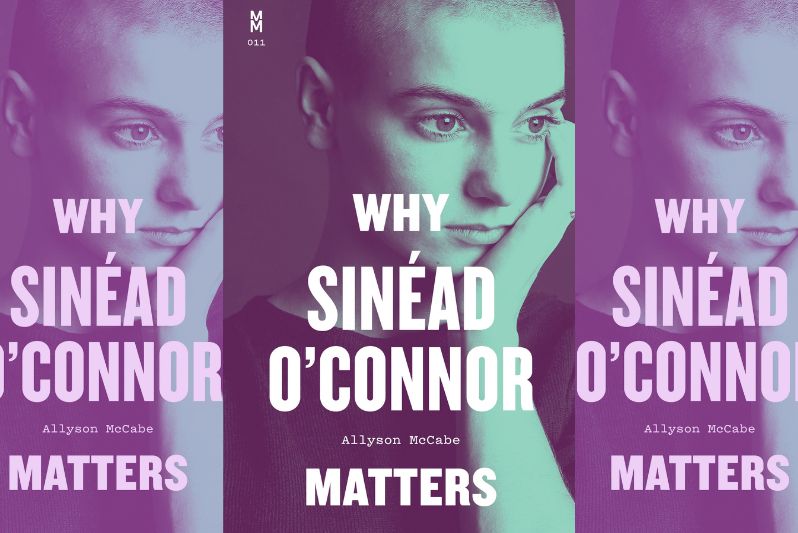Why Sinead O’Connor Matters gives insight into an unorthodox creative spirit

When people ask why I enjoy reading books of music criticism, I tell them that these books provide a much-needed glimpse into the psyche of creatives. Not in an exploitative way, but as a matter of sociology and respect for the people who make art we love. By examining the inner workings of artists and their music, often in context of their own lives, we can better understand how and why people do what they do and sometimes why they believe what they believe. The best in this genre go far beyond biography or formalized examination of the craft to help people learn more about artists, art, and their role in the wider world.
The newest entry in the “Music Matters” series by University of Texas Press, Why Sinead O’Connor Matters by Allyson McCabe, does exactly that. It was initially born from the author’s review of Rememberings (Sinead O’Connor’s duly celebrated 2021 memoir), her related interviews with O’Connor, and the media appearance she gave discussing her time with O’Connor. A superb showcase of the artist as a musician and a person, it seeks to discern her persistent drive to make music despite the obstacles in her path and what we can learn from such an unorthodox creative spirit.
The overarching thread of the book follows O’Connor’s career. McCabe artfully walks the reader through the singer’s childhood, her rise and quick success, the fallout from tearing the Pope’s picture on Saturday Night Live, the albums that followed, her conflicts with the press, and beyond. The writing shines when it deftly explores how O’Connor’s upbringing and other domestic details impacted her art. Readers quickly realize that O’Connor simply wanted to make music that was important to her, but she often found herself stymied by the music industry, her own reactions to the press, or some combination of both.
The heart of this immaculate work lies in how McCabe deftly navigates the turbulent intersection of criticism and compassion. When McCabe talks transparently about her own childhood traumas and how they often mirrored O’Connor’s, her candor is both refreshing and admirable. It’s one thing to relate parasocially to a celebrity because of a tenuous shared connection, but it’s something else entirely when you actually had similarly painful experiences.
Crucially, no critic wants to face charges of hagiography, but it’s very important to be empathetic and honest with one’s own feelings as they learn more about their fellow human. McCabe takes great care to never apologize for O’Connor’s decisions, choices and contradictions. Her book delivers a frank discussion of the artist’s life and career with as much context as possible, often including her own press releases, public statements and social media messages.
However, O’Connor’s unique blend of fame and infamy doesn’t mean she isn’t worthy of care and respect. To that end, McCabe catalogues all the rampant sexism and misogyny foisted upon the singer throughout her career, especially from a music press corps anxious for tabloid fodder. The author then takes it a step further by examining the physical, spiritual and psychological harm that O’Connor experienced, whether from her mother, the Catholic Church and (according to her memoir) Prince. The point of having such a strong and persistent undercurrent in the book is not to make excuses for O’Connor’s behavior and choices but to provide context for them and to highlight how much she has overcome in her life.
This book sets a new standard in music criticism because McCabe takes O’Connor at face value, which meant dealing with her contradictions, mistakes, and foibles. She is caring and sympathetic without being soft or saccharine. In doing so, she reveals the real person behind the art while also delving into heady concepts surrounding personhood, creativity, and how they must be examined separately and together. It is a deeply personal reflection on who Sinead was and is, and is compounded with a thoughtful analysis of how people still profoundly misunderstand her life and art. Even if you don’t know O’Connor or her music, you can apply McCabe’s passion for music and her critical eye to your own favorite artists.
Treble is supported by its patrons. Become a member of our Patreon, get access to subscriber benefits, and help an independent media outlet continue delivering articles like these.

